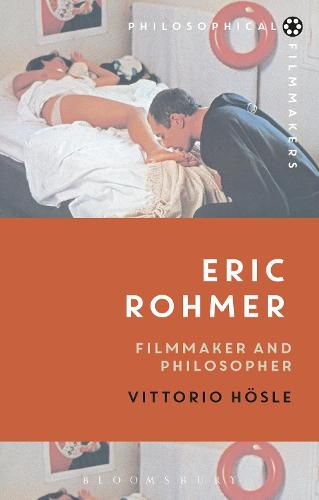Readings Newsletter
Become a Readings Member to make your shopping experience even easier.
Sign in or sign up for free!
You’re not far away from qualifying for FREE standard shipping within Australia
You’ve qualified for FREE standard shipping within Australia
The cart is loading…






Rohmer is one of the most popular French directors of the second half of the 20th century, one of the members of the famous Nouvelle Vague that reconstituted French cinema based on the theoretical principles articulated in the Cahiers du Cinema - from whose editorship he was fired when the conservative Catholic opposed its turn toward politicization. Like some of his colleagues, Rohmer is extremely interested in both the history and the philosophy of film: Brother of the noted French philosopher Rene Scherer, he begins his career as a film critic In his films, deep moral conflicts as well as the search for one’s own identity emerge from the intricacies of seemingly superficial everyday life interactions, particularly between a man and a woman.
Hoesle’s book puts Rohmer in the context of a long French tradition of reflected eroticism, with Marivaux, Musset, Stendhal, and Jean Renoir as crucial figures, and shows how Rohmer both recognizes the inner logic of eroticism and subjects it to moral demands that he inherits from his Catholic background. For Rohmer, the tension between the two can usually only be solved by some unexpected event that can be interpreted as an equivalent of grace.
$9.00 standard shipping within Australia
FREE standard shipping within Australia for orders over $100.00
Express & International shipping calculated at checkout
Rohmer is one of the most popular French directors of the second half of the 20th century, one of the members of the famous Nouvelle Vague that reconstituted French cinema based on the theoretical principles articulated in the Cahiers du Cinema - from whose editorship he was fired when the conservative Catholic opposed its turn toward politicization. Like some of his colleagues, Rohmer is extremely interested in both the history and the philosophy of film: Brother of the noted French philosopher Rene Scherer, he begins his career as a film critic In his films, deep moral conflicts as well as the search for one’s own identity emerge from the intricacies of seemingly superficial everyday life interactions, particularly between a man and a woman.
Hoesle’s book puts Rohmer in the context of a long French tradition of reflected eroticism, with Marivaux, Musset, Stendhal, and Jean Renoir as crucial figures, and shows how Rohmer both recognizes the inner logic of eroticism and subjects it to moral demands that he inherits from his Catholic background. For Rohmer, the tension between the two can usually only be solved by some unexpected event that can be interpreted as an equivalent of grace.